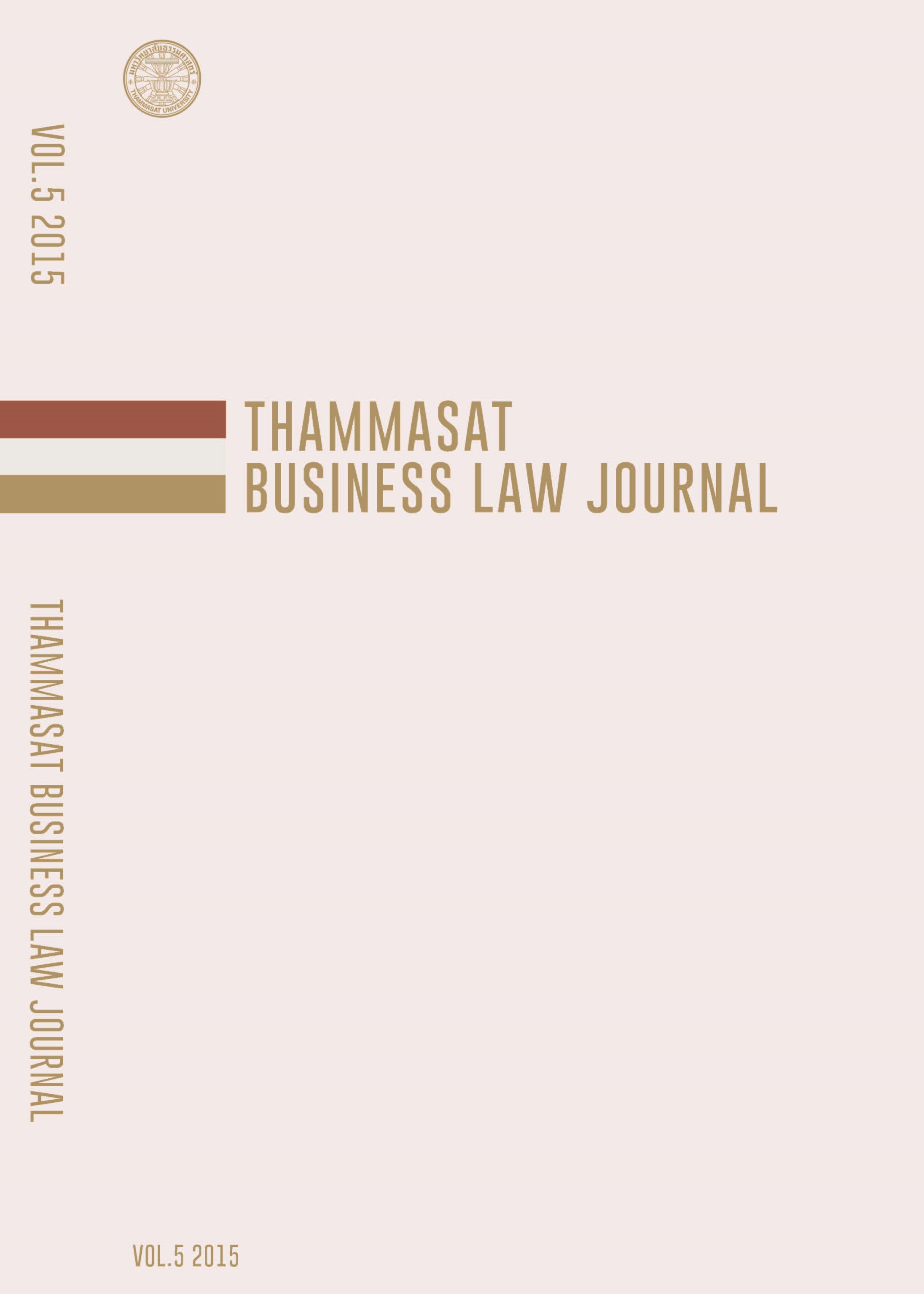LEGAL PROBLEMS INVOLVING MIXED-USE CONDOMINIUM IN ONE BUILDING
Main Article Content
Abstract
Even though Thailand has promulgated the Condominium Act B.E. 2522 and had the latest amendment in B.E. 2551 with a view to manage the living of co-owners in the condominium, the aforementioned Act is somewhat outdated because it was promulgated mainly to serve single purpose condominium and further it creates a loophole in relation to the management of common property in the mixed-use condominium where there are different types of units located in the same building. As a result of the complicated structure of mixed-use condominium which leads to the conflict use of common property among different types of unit in the building, this thesis will focus on the problem of the Condominium Act B.E. 2522 in relation to the management of common property in the mixed-use condominium. This is because a mixed-use condominium triggers a more complex structure for common property than that of the single purpose condominium since the management of common property in the building will not belong to one group of co-owners who has the same interest, but consists of co-owners with various interest who are in the same building.
This thesis finds that the management of common property in the mixed-use condominium according to the current Condominium Act poses many controversies among different types of units, such as; the lack of a clear definition of “condominium” and “common property”, the lack of limitation on the multipurpose area in the condominium, the conflict among the different types of co-owners with regard to the maintenance and management of common property, voting rights on the common property reserved only for the usage of certain types of condominium units and the conflict between the right of certain unit owners and the right of all unit owners in the same condominium.
In order to provide solutions to the management of common property in the mixed-use condominium, this thesis therefore studies the condominium law in two countries: the USA and Singapore, where their condominium laws’ structures contain the measures regarding the management of common property in the mixed-use condominium and also the management corporation and subsidiary management corporation in dealing with various types of units in the same building.
As a result of the study concerning the management of common property in the mixed-use condominium, this thesis proposes that the definitions of “condominium” and “common property” under the Condominium Act B.E. 2522 be amended to accommodate the mixed-use condominium. The limitation on multipurpose area should be established. Moreover, the voting rights in connection with the common property for certain co-owners having the same unit purpose should also be separated from the voting rights of the rest of the co-owners in the building so as to prevent the conflict use among different types of units in the mixed-use condominium.
Article Details
References
John B. Lundquist, “Mixed Use Condominiums under the Minnesota Uniform Condominium Act”, 10 Wm. Mitchell L. Rev. 157, 101 (1984).
Eight Thonglor Residences, available at http://www.pacificstargrp.com/docs/Thonglor_Factsheet.pdf (accessed July 18, 2015).
Statistic on Bangkok Metropolitan Real Estate Project, available at http://homewithdream.com/2013/12/09/statistics-real-estate/ (accessed Dec 6, 2014).
ไกรฤกษ์ ตันติเวสส. อาคารอเนกหน้าที่ใช้สอย. วิทยานิพนธ์สถาปัตยกรรมศาสตร์มหาบัณฑิต.คณะสถาปัตยกรรมศาสตร์. จุฬาลงกรณ์มหาวิทยาลัย, 2523,[Krairiksh Tuntivet, Multi-function Building Complex, thesis of Master of Architecture, Faculty of Architecture, Chulalongkorn University (1980)]
วิกรณ์ รักษ์ปวงชน, กรรมสิทธิ์ในอาคารชุด. วิทยานิพนธ์นิติศาสตร์มหาบัณฑิต มหาวิทยาลัยธรรมศาสตร์ 2528. [Vikorn Rakpuangchon, Condominium Ownership, Thesis of Master of Laws, Thammasat University, Bangkok, 1985]


